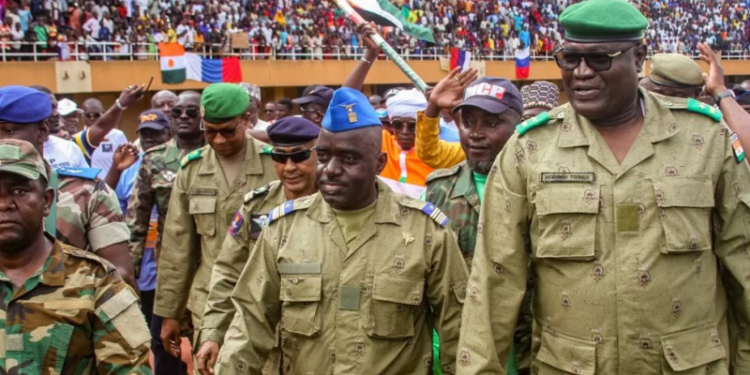Nigeriens expressed relief on Sunday as West Africa’s regional bloc lifted some of the sanctions imposed on the country following last year’s coup. The Economic Community of West African States (ECOWAS) had imposed trade suspension and stringent sanctions in July after the military coup ousted Niger’s president, Mohamed Bazoum. Despite the threat of military intervention by ECOWAS, Bazoum remains confined in the presidential palace in Niamey with little progress toward restoration. On Saturday, ECOWAS announced the lifting of certain sanctions, including the no-fly zone, border closures, and asset freezes.
The impact of the sanctions, particularly in a country where over 40% of the population lives in extreme poverty according to the World Bank, has been significant. The news of the partial lifting of sanctions was met with joy by the people, hoping for a return to normalcy. Abdoul Aziz Issoufou in Niamey expressed happiness, anticipating positive effects on the economy, especially with the upcoming month of Ramadan. He hoped for a drop in the prices of basic commodities to ease the burden on both rich and poor families.
In Tahoua, celebrations erupted with the honking of car horns and parades of motorbikes and cars. However, economist Hima Garba cautioned that despite the lifting of sanctions, Niger continues to face challenges such as violence and jihadist attacks along its borders. The Nigerien authorities had not provided an official response to the lifting of sanctions at the time of reporting.
Niger, along with Mali, Burkina Faso, and Guinea – all of which experienced coups – had been suspended from ECOWAS. The announcement of the partial lifting of sanctions signals a potential shift in the regional response to the political situation in Niger.
























